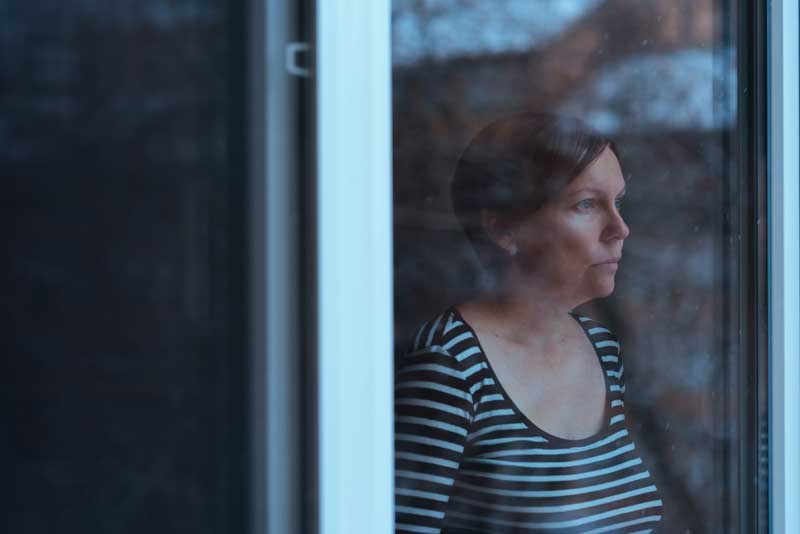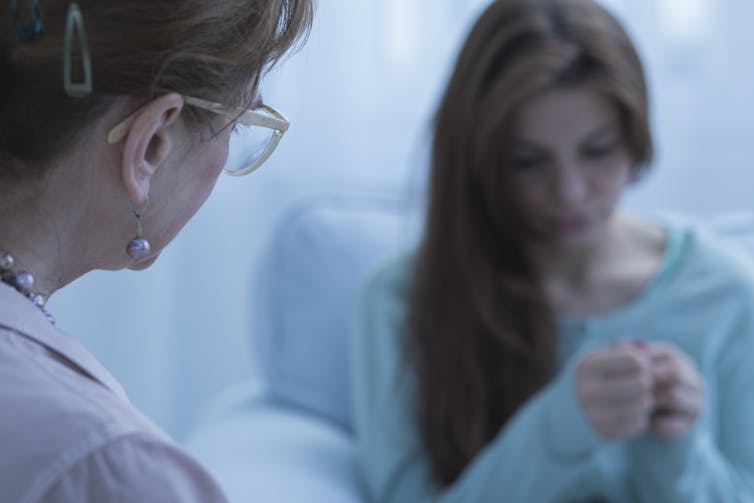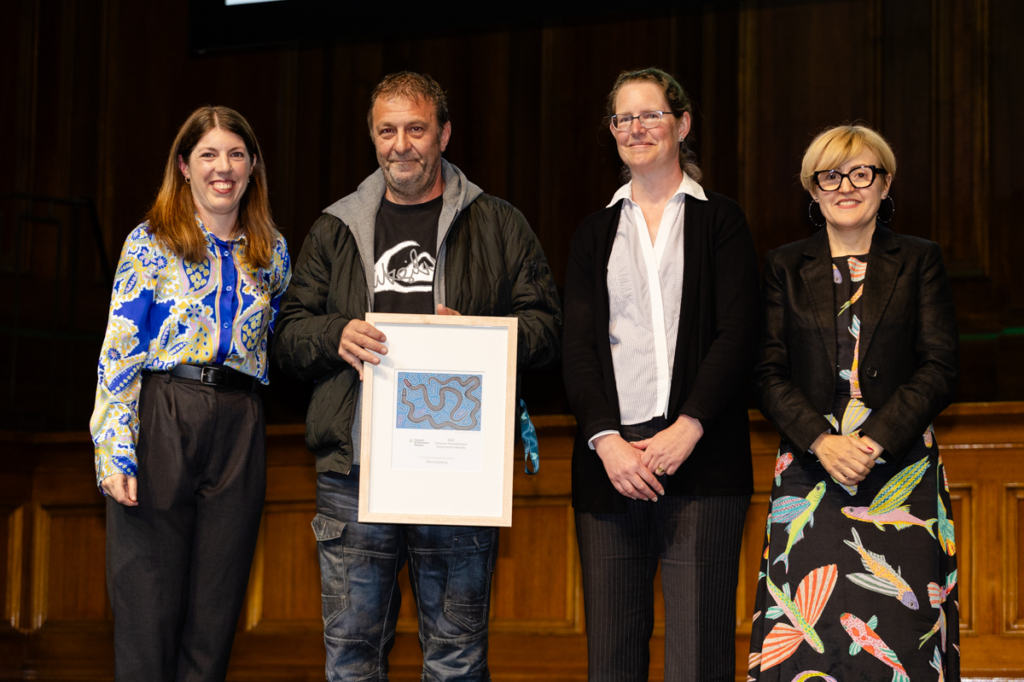
How domestic violence affects women's mental health
Every week in Australia, a woman is murdered by someone she knows. And it’s usually an intimate male partner or ex-partner.

One in three women has suffered physical violence since the age of 15. In most cases (92% of the time) it’s by a man she knows.
Added to this, one-quarter of Australian women have suffered emotional abuse from a current or former partner. This occurs when a partner seeks to gain psychological and emotional control of the woman by demeaning her, controlling her actions, being verbally abusive and intimidating her.
Physical and emotional abuse is not only distressing, it’s psychologically damaging and increases women’s risk of developing a mental illness.
Read more: Revealed: the hidden problem of economic abuse in Australia
How violence increases the risk
Women who have experienced domestic violence or abuse are at a significantly higher risk of experiencing a range of mental health conditions including post-traumatic stress disorder (PTSD), depression, anxiety, substance abuse, and thoughts of suicide.
In situations of domestic violence, an abuser’s outburst is commonly followed by remorse and apology. But this “honeymoon” period usually ends in violence and abuse. This cycle means women are constantly anticipating the next outburst. Women in these situations feel they have little control, particularly when the abuse is happening in their own home.
Read more: Why some migrants in abusive relationships don’t receive help, and are deported
It’s no wonder living under such physical and emotional pressure impacts on mental and physical well-being.
One review of studies found the odds of experiencing PTSD was about seven times higher for women who had been victims of domestic violence than those who had not.
The likelihood of developing depression was 2.7 times greater, anxiety four times greater, and drug and alcohol misuse six times greater.
The likelihood of having suicidal thoughts was 3.5 times greater for women who had experienced domestic violence than those who hadn’t.

An Australian study of 1,257 female patients visiting GPs found women who were depressed were 5.8 times more likely to have experienced physical, emotional or sexual abuse than women who were not depressed.
Not only is domestic violence and abuse a risk factor for psychological disorders, but women who have pre-existing mental health issues are more likely to be targets for domestic abusers.
Women who are receiving mental health services for depression, anxiety and PTSD, for instance, are at higher risk of experiencing domestic violence compared to women who do not have these disorders.
Read more: Pregnant women are at increased risk of domestic violence in all cultural groups
How do mental health services respond?
Although survivors of domestic violence are more likely to suffer mental illness, they are not routinely asked about domestic violence or abuse when getting mental health treatment. So they’re not provided with appropriate referrals or support.
One study found only 15% of mental health practitioners routinely enquired about domestic violence. Some 60% reported a lack of knowledge about domestic violence, while 27% believed they did not have adequate referral resources.
One-quarter (27%) of mental health practitioners provided women experiencing domestic violence with information about support services and 23% made a referral to counselling.
In the absence of direct questioning, survivors of domestic violence are reluctant to disclose abuse to health service providers. If mental health providers are managing the symptoms of the mental illness but ignoring the cause of the trauma, treatment is less likely to be successful.
Practitioners need to routinely ask women about present or past incidents of domestic violence if they are diagnosed as depressed or anxious, or if they show any other signs of mental distress.
Practitioners should be able to provide referrals to specialist services and need to be adequately trained to respond to those who disclose domestic violence. This means not focusing solely on medical treatment, but also on referrals and support.
Read more: Man who burnt his wife alive gets at least 27 years’ jail, but not life – as victim was no stranger ![]()
Rhian Parker, Academic Convenor, MAEVe ( Melbourne Alliance to End Violence against women and their children, University of Melbourne
This article is republished from The Conversation under a Creative Commons license. Read the original article.



